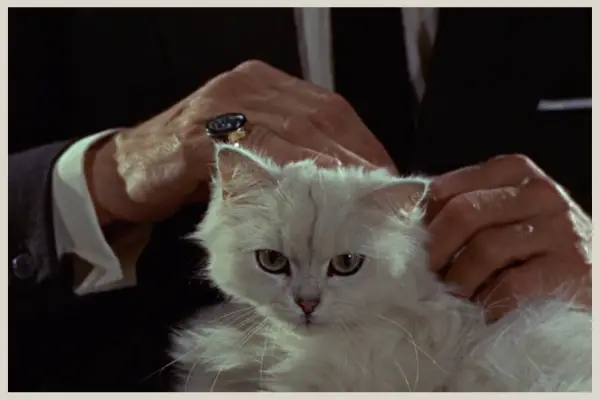Who Played Blofeld?
Who played Blofeld? It’s a name that instantly conjures up images of the archetypal Bond villain. With his trademark bald head, white Persian cat, and ominous presence, he has become a symbol of evil in popular culture.
Blofeld has appeared in several James Bond novels and films as the primary antagonist, and has been played by a total of five actors in the official Bond series, and one actor in a non-official Bond film.
Each actor brought their own unique interpretation to the character, adding to his enduring legacy. Despite the varied portrayals, Blofeld’s core characteristics have remained consistent, including his intelligence, psychotic ambition, and determination to bring about Bond’s downfall.
In this post, we will explore the iconic character, and take a closer look at the actors who have played Blofeld, examining how each actor brought their unique interpretation to the character of the biggest and baddest villain of all time: Ernst Stavro Blofeld.
Anthony Dawson
Anthony Dawson was the first actor who played Blofeld, and his contribution to the character of Ernst Stavro Blofeld cannot be understated. He also played a part in the first Bond film Dr. No, but as assassin Professor Dent.
When Blofeld made his debut in the 1963 film From Russia with Love, secrecy was paramount, and the character’s name was never mentioned. Instead, he was referred to as ‘Number 1,’ in recognition of his position as the head of SPECTRE.
Additionally, Dawson’s portrayal of Blofeld was limited to his physical movements and hand gestures, as his face was never shown to the audience. This secrecy only added to the character’s mystique and made him all the more menacing.
Dawson returned to play Blofeld once again in the 1965 film Thunderball, where his face remained hidden from view. Instead, he once again provided the character’s physical movements, while his voice was dubbed over by Eric Pohlmann, who also provided the voice for Blofeld in From Russia with Love.
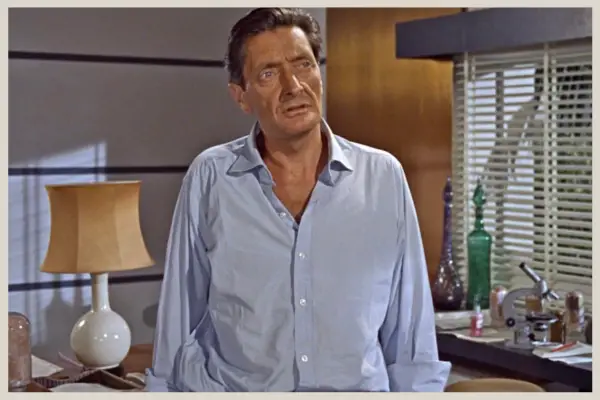
Despite not being officially credited for his portrayal of Blofeld in either film, Dawson helped to establish the character as one of the most iconic villains in film history. His portrayal of Blofeld’s movements and body language helped establish the mystique that still surrounds him even though we know what he looks like.
Pohlmann deserves credit, too, as his distinctive and cold, robotic voice helped to establish Blofeld as a true force to be reckoned with, and certainly added to the intrigue about him.
As well as 3 Bond films, Dawson also starred in several other films by director Terence Young, including hey Were Not Divided (1950), Valley of Eagles (1951), The Amorous Adventures of Triple Cross (1966), Red Sun (1971), Inchon (1982), and The Jigsaw Man (1983).
Other notable films include The Way to the Stars (1945), The Queen of Spades (1948), and The Wooden Horse (1950) and Alfred Hitchcock’s Dial M for Murder (1954).
Donald Pleasence
Donald Pleasence‘s portrayal of Ernst Stavro Blofeld in the 1967 film You Only Live Twice is often cited as the most iconic and memorable version of the character. Pleasence’s bald head, white Persian jacket, and scar on his eye helped to establish the archetypal look of the character that is still referenced in popular culture today.
Pleasence’s portrayal of Blofeld marked a significant moment in Bond movie history, as the character was promoted to lead villain. There’s mystery surrounding the character throughout, until he finally introduces himself to Bond in chilling manner, and it is one of the most iconic scenes in Bond history.
Pleasence’s portrayal of Blofeld introduced several key traits that have since become synonymous with the character, including his baldness, facial scars, and secret volcano base. However, Pleasence’s most significant contribution to the character was his maniacal glare and twisted sense of humor, which helped to establish Blofeld as a truly unforgettable villain.
While there’s no clear consensus on who the most popular Blofeld is, Pleasence’s portrayal is often cited as the most important. This is somewhat ironic, as the actor was a late replacement for Jan Werich, who was originally cast as Blofeld but was deemed unsuitable for the role during filming.
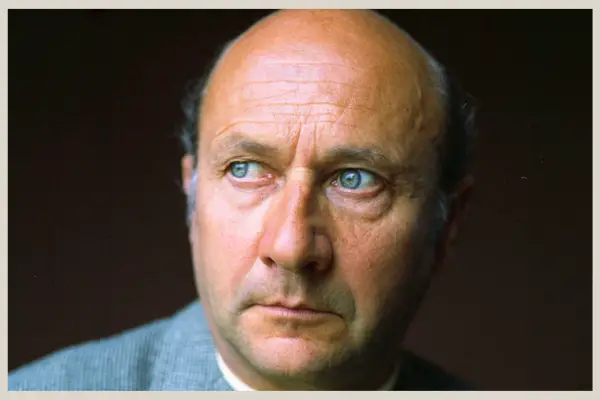
Ironically, the producers didn’t cast Pleasence again in the next movie as they wanted a more physically imposing figure to play Blofeld. Nonetheless, Pleasence’s iconic performance helped to establish Blofeld as one of the most memorable villains in film history, and his portrayal remains a favorite among many Bond fans to this day.
Donald Pleasence starred in many other films and was recognized for his portrayal of deranged, fanatical, or villainous characters such as Dr. Crippen and Heinrich Himmler in The Eagle Has Landed (1976), and arguably his most iconic role was Dr. Sam Loomis in John Carpenter’s horror film Halloween (1978).
Pleasence reprised this role in several sequels, including Halloween II (1981), Halloween 4: The Return of Michael Myers (1988), Halloween 5: The Revenge of Michael Myers (1989), and Halloween: The Curse of Michael Myers (1995), which was dedicated to his memory after his passing in February 1995. Additionally, archival footage featuring Pleasence was incorporated into the 2021 film, Halloween Kills.
Telly Savalas
Telly Savalas was the third actor who played Blofeld for the next Bond film, On Her Majesty’s Secret Service (1969). It was a complete overall for the Bond production team as Sean Connery made way for George Lazenby, too.
In On Her Majesty’s Secret Service, Blofeld brainwashes 12 women and threatens the world with a biological attack. Bond manages to stop his nemesis, but not before Blofeld escapes and later returns to help gun down Bond’s new wife, Tracy (Diana Rigg) in a dark and shocking turn of events.
Telly Savalas’s portrayal of Blofeld was significantly different from Pleasence’s, taking on more of a mob boss persona rather than a criminal mastermind. This was in keeping with Eon’s decision to recast the character along with Bond, as they sought to create a more rugged and action-oriented version of the character.
Despite only appearing as Blofeld in one film, Savalas’s performance is often regarded as one of the more memorable and distinctive portrayals. His take on Blofeld added a layer of menace and thuggery as opposed to Pleasence’s more intellectual and calculating version of Blofeld.
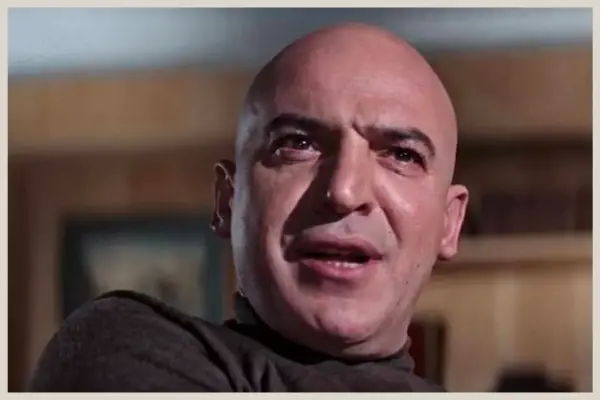
Savalas’ other notable film credits include The Dirty Dozen (1967), Escape to Athena (1979) and Birdman of Alcatraz (1962), which he received an Academy Award and Golden Globe nomination for Best Supporting Actor.
Salas enjoyed an extensive filmography, but was arguably most famous for his role in American cop show Kojak, in which he played Lieutenant Theo Kojak from 1973-78 and 1985-90.
Telly Savalas also enjoyed a successful singing career, and his 1975 cover of Bread’s “If” hit No. 1 in the UK and reached the top 12 in Australia. He passed away January 22, 1994 due to complications from prostate and bladder cancer.
Charles Gray
In the 1971 film Diamonds Are Forever, Charles Gray was the next to play Ernst Stavro Blofeld. It’s unclear why Telly Savalas didn’t return for the film, but by this point in the franchise, it had become a tradition to recast the character after every appearance.
And with On Her Majesty’s Secret Service receiving poor reviews, the producers probably wanted something fresh, especially with Sean Connery returning as Bond.
Unlike his predecessors, Charles Gray’s portrayal of Blofeld was wildly different. He has a head full of hair, an aristocratic manner, there’s no chilling and creepy personality, and even though he was an imposing figure, the cabriole holding villain seemed more camp than anything.
One infamous scene saw the SPECTRE chief in drag as he disguises himself to get away. Gray’s Blofeld planned to destroy Washington D.C. and hold the world to ransom, but his performance failed to generate the same sense of menace as previous actors in the role.
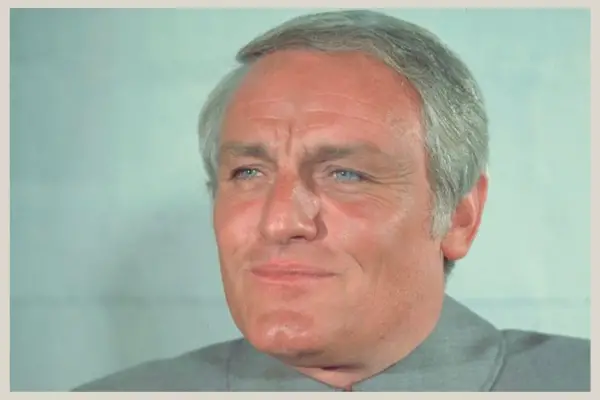
Despite these criticisms, Gray’s portrayal of Blofeld did leave some fans wondering about the character’s ultimate fate. While it appeared that he had been killed by the end of the film, his true fate was left open-ended.
Gray had previously appeared in the Bond franchise as Dikko Henderson in You Only Live Twice, but his portrayal of Blofeld failed to capture the same sense of menace as his predecessors. Nonetheless, his interpretation of the character remains an interesting footnote in Bond movie history.
Charles Gray starred in many other films, but his biggest role outside of playing Blofeld, was cult musical The Rocky Horror Picture Show (1975). In the film, Gray played a role that allowed him to showcase his song and dance abilities while trying to maintain a straight face in the midst of a wildly convoluted plot.
Charles Gray passed away in March 2000 at the age of 71 due to cancer.
John Hollis
John Hollis is another actor who played Blofeld. Well, kind of. Allow me to explain: In 1973, legal disputes over the rights to Blofeld and SPECTRE began to emerge. Ian Fleming had originally created the character of Blofeld alongside Kevin McClory, who helped to develop an early potential movie script that was ultimately unused.
Fleming went on to use the character in his novel Thunderball, and an agreement was made between Eon and McClory that allowed Blofeld to be used in the Bond films for a decade. However, this agreement eventually expired, leaving the franchise legally unable to use the character.
Despite these legal obstacles, the Bond producers attempted to include a character that resembled Blofeld in the 1981 film For Your Eyes Only. The character is seen in a wheelchair and sporting a neck brace, and is never explicitly named or shown in full.
John Hollis played the physical reference for the Blofeld-like character in For Your Eyes Only, while Robert Rietty provided the voice. While this version of the character is often referred to as “Nofeld” by fans due to the lack of explicit naming, it remains an interesting footnote in Bond movie history, and a testament to the lengths that the producers were willing to go to keep the franchise going despite legal obstacles.
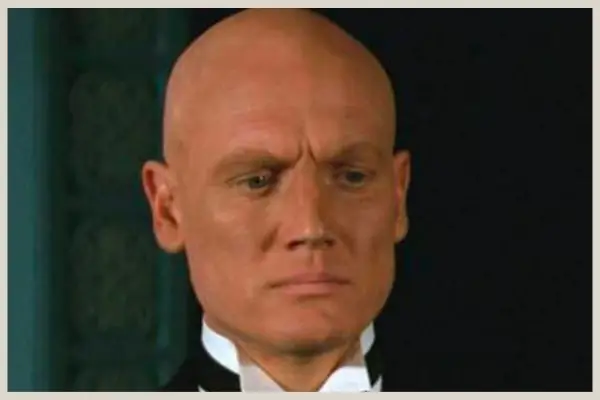
Nofeld is only in the pre-title sequence, and he tries, unsuccessfully of course to kill Bond. Bond is in a helicopter that Nofeld is controlling with a remote control, but as Bond takes control, and picks him up in his wheelchair by the helicopter’s landing skid, and then flies him over a tall smokestack and drops him down there, seemingly to his death.
The Bond producers’ decision to include a character that was so obviously meant to evoke Blofeld was likely a response to the legal wrangling, and was also intended to show McClory that they didn’t need the character to continue making successful Bond films.
John Hollis starred in many other movies, and in the same year as For Your Eyes Only, he reprised his role in Superman II, Flash Gordon, and The Empire Strikes Back. Other notable films include the 1967 Bond parody Casino Royale, The Dirty Dozen in the same year, and in 1975 The Adventure of Sherlock Holmes’ Smarter Brother. His last film was Superman IV (1987). Hollis paased away i October 2005.
Christoph Waltz
After years of legal issues surrounding the use of Blofeld and SPECTRE, Christoph Waltz was finally cast as the iconic villain in the 2015 Bond film Spectre, and we saw a new beginning for Bond’s longest running feud.
Waltz brought a sense of grounded reality to the role, eschewing the parodic tone that had crept into some of the earlier portrayals of Blofeld. While this version of Blofeld didn’t have the bald head of some of his predecessors, we see how he got the facial scar that defined the original character. The film also included a nod to the classic white Persian cat, albeit in the form of a subtle Easter egg.
The biggest change to Blofeld in Spectre was his backstory. The film revealed that after the death of Bond’s parents, he was taken in by the Oberhauser family and developed a close relationship with the father, Hannes. This relationship eventually soured when Hannes’ biological son killed him and went on to become the super-criminal Ernst Stavro Blofeld.
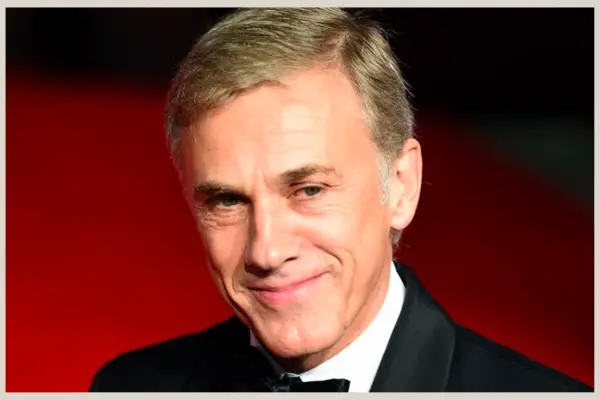
This gave the character a personal grudge against Bond, and retroactively made the entirety of the Daniel Craig era the work of Blofeld, which kind of made life difficult for the Bond producers who had introduced new criminal syndicate Quantum into the fray.
In Spectre, Blofeld is almost killed by Bond, but instead allows him to live before M (Ralph Fiennes) has him arrested. This allows Waltz’ Blofeld to play a part in the follow up, No Time To Die, where he orchestrates everything from inside prison.
Bond inadvertently kills Blofeld after passing on the nanobot. This is a killing mechanism designed by Lyutsifer Safin (played by Rami Malek) to kill all Spectre members. It’s passed by any carrier who touches a Spectre member, and after Bond attacks Blofeld, he passes it on to him and he dies shortly after.
But as we already know, Bond dies in the end of No Time To Die. And with Daniel Craig hanging up the tuxedo, we are set for a completely new beginning, when we finally get going again with the next James Bond.
Christoph Waltz joined joined Anthony Dawson as actors who played Blofeld in more than one Bond film. But of curse, Waltz is a very modern day actor and although he has starred mostly in European films, he has starred in several recent blockbuster films, including Quentin Tarantino films Inglorious Basterds (2009) and Django Unchained (2012).
Max Von Sydow
While Eon Productions was unable to use SPECTRE in the 1980s, Kevin McClory had no such restrictions. In 1983, Warner Bros. released Never Say Never Again, a non-official James Bond movie starring Sean Connery as 007.
It was released at the same time as Octopussy and they compteted at the Box Office, with the official Bond movie winning out. This film saw the return of the mysterious leader of SPECTRE, with Max Von Sydow taking on the role of Blofeld. Although Von Sydow’s appearance as Blofeld was only a minor role, it marked a significant return for the character after years of legal battles.
Interestingly, McClory chose to retain the white Persian cat as a part of Blofeld’s character, despite this element not appearing in any of Ian Fleming’s original books. This addition was largely made famous by Eon’s Bond films, and McClory’s decision to include it in Never Say Never Again may have been a way of borrowing back some of the creative liberties that Eon had taken.
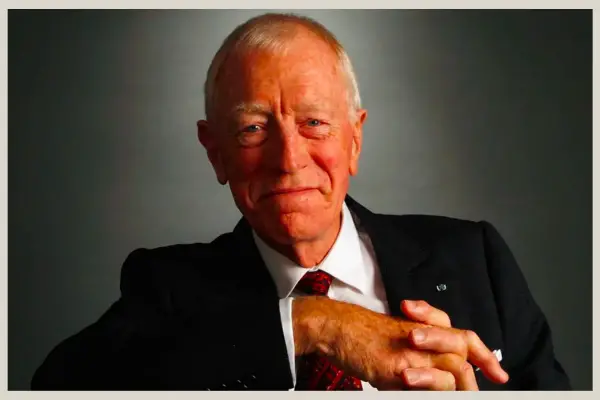
Despite the unofficial status of this incarnation of Blofeld, Von Sydow’s performance was a reminder of the enduring appeal of one of the most iconic Bond villains. And even though it lost out to Octopussy at the Box Office, it was a commercial success.
So, although it’s unofficial, Max Von Sydow is another actor who played Blofeld in a Bond film. He was a Swedish actor, and starred in many European and American films. Some of his best known English speaking films include Steppenwolf (1974), Flash Gordon (1980), Ghostbusters II (1989), and Robin Hood (2010). He also starred in many TV prodcutions with The Tudors and Game of thrones two of his last roles before he passed away on 8 March 2020 at his home in Provence, France, aged 90.
Who Played Blofeld?
Over the years, Blofeld has become one of the most iconic and memorable villains in cinematic history. Played by five different actors and one unofficial performer, each incarnation has brought a unique interpretation of the character to the screen.
From the shadowy figure pulling the strings in From Russia With Love to the personal grudge-holding villain of Spectre, Blofeld has evolved over time to reflect the changing times and tastes of audiences.
While there may not be a consensus on who played Blofeld best, each actor brought something special to the role, whether it was the creepy demeanor of Donald Pleasence, the mob boss air of Telly Savalas, or the grounded psychosis of Christoph Waltz.
Despite the legal wrangling and production issues that prevented Blofeld from appearing in the Bond franchise for several years, the character remains a fan favorite, and his impact can be felt across the wider pop culture landscape. From The Simpsons to Austin Powers, Blofeld’s distinctive look and personality have been parodied and referenced countless times.
In the end, the question of who played Blofeld best may never be definitively answered. But what is clear is that each actor who took on the role left their mark on the character and helped to shape one of cinema’s most enduring villains.

